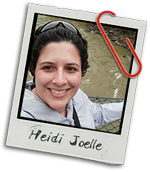What are some different ways to study the Bible?
For Bible references in this video, check the description on YouTube.
Hermeneutics is a whole branch of knowledge devoted to how we study the Bible. All the potential ways we study Scripture have the same rules, but the #1 rule of Bible study is to know the context of the passage. The Bible wasn’t written in a vacuum; it's more than “just” the Bible.
The books of the Bible are a combination of historical documents that were written by different people, at different times, in different places, and in different languages. All together, they tell many small stories as well as a bigger, overarching story, plus there's poetry and songs and instructions for living as a child of God. But when we study the Bible, we must read each passage with its context in mind.
What does it mean to read the Bible in context?
Context is essentially the setting for the passage you want to study—when it was written, who wrote it, and to whom it was written. Understanding the context helps you to fully understand the passage. To take a passage "out of context" is to disregard the original intent and meaning of those verses, which often leads to making the Bible say things it was never meant to.
To the best of your ability, learn the following about the Bible passage you're studying:
- What did this passage mean for the original audience at the time? Take into account the culture, the time period, the politics, the speaker, etc. There's a big difference between Jesus making a proclamation and one of the Pharisees making an accusation. We don't get to cherry-pick verses to make them mean what we want.
- Is this passage DEscriptive? Descriptive text describes an event that happened—such as the parting of the Red Sea in the Old Testament, Jesus clearing the temple, or the walls of Jericho falling down.
- Is this passage PREscriptive? Prescriptive text gives instruction or wisdom. A good example of prescriptive text would be Proverbs. We likely won’t have need for God to part any bodies of water for us, but the commandment to not murder is something we must certainly apply to our lives today.
A great reference for looking up the context of any given verse is our network site BibleRef.com. They are working hard to provide a commentary on every verse of the Bible! (Also see: How do I read the Bible in context?)
What are some different ways to study the Bible?
Bible study methods can be broken into two broad categories: book studies and topical studies. They’re fairly different, but we still need to follow the same rules about reading in context.
Method #1: Book-based Bible Study
Book studies often have the word "systematic" attached to them, meaning that they are fixed and follow a plan, order, or method. To study a book of the Bible is to carefully comb through the entire book, chapter by chapter, verse by verse. If a church pastor uses the book study method, they may take a whole sermon just to go over the first half of the first verse of the first chapter of the book!
The benefit of the book study method is that you get ample time to dive deep into the context and understand the world as it was around those passages. You can also more easily discover the flow of the book and may see whole paragraphs, pages, and letters rather than simply individual verses. Reading beloved Bible verses in context is like seeing a favorite movie quote in its original context, with the whole story built up around it. That quote makes so much more sense in its original context.

Method #2: Topical Bible Study
Where book studies zoom in to see how it all fits together, topical studies zoom out. In a topical study, you would pick a topic, word, or theme, then search through the Bible to find all the references to that topic, word, or theme. You're unlikely to stay in just one book of the Bible when you're doing a topical study. As you examine various passages throughout the Bible, look for patterns that communicate the overarching wisdom about that topic across all of Scripture.
A great resource for searching certain words or topics in the Bible is OpenBible.info, a topical search engine of the ESV Bible. Don't forget about keeping all the passages you find in context though, because certain contexts could really change what any given verse seems to be saying when it stands alone. As OpenBible's creators caution, "The Bible isn’t a Magic 8-Ball or a fortune cookie, so don’t treat it like one, OK?"

What's the best method for Bible study?
Actually, doing both methods of Bible study is beneficial to one's faith! If we were to only do book-based Bible studies, we may find ourselves getting bogged down in the details and lose the overarching story of the Bible. If we only did topical Bible studies, we might end up getting ahead of ourselves, plucking out verses to fit our study purposes—ultimately taking those verses out of context, which twists and confuses the original meaning of the passage.
"All Scripture is breathed out by God and profitable for teaching, for reproof, for correction, and for training in righteousness..." —2 Timothy 3:16
Anyone who has studied Scripture for any length of time will tell you that the more they study, the more they find to learn. If you aren’t certain about something, ask questions! Read the verses around the verse you're confused about. Ask God to provide wisdom (James 1:5). Consult other believers. Look up commentaries on those passages. Piece together what you know to be true with the new information you're learning and see how it all fits.
Choosing a place to start studying the Bible and really getting into it can be quite intimidating—especially if you're a new believer or worried about studying it "wrong" or accidentally misunderstanding. But always know this: you are just as capable of studying the Bible as a pastor or youth leader or anyone you may feel is more "spiritual" than you. The Bible was meant for ALL people. And we'll always be here to help if you have questions too!
ALSO SEE:
- What is the Bible?
- How old is the Bible?
- Is the Bible a fairy tale?
- Why should I read the Bible?
- What does it mean to read the Bible in context?
- How can I get excited about reading the Bible?
- How do I study the Bible the "right" way?
- Where should I start reading the Bible?
- What is a study Bible?
- Is not reading the Bible a sin?
- How did we get different Bible translations?


TL;DR
Bible study methods boil down to two categories: book studies and topical studies. Book studies go verse by verse through a book of the Bible. Topical studies focus on a specific subject across all of Scripture. Regardless of which method you use, you must keep the original context of the passage in mind—being aware of the speaker, the audience, and the time period—as well as determining whether the message is descriptive or prescriptive. Try not to be intimidated by studying the Bible; it was meant for us to understand and asking questions is always OK.

Writer: Heidi Joelle
Heidi Joelle spends her days staring at paperwork and making sure it is where it is supposed to be, how it is supposed to be, when it is supposed to be. And then she comes home and makes sure the porky little dog isn't eating a trashcan. Between these two events, she tries to learn and see as much of the world around her as possible.
